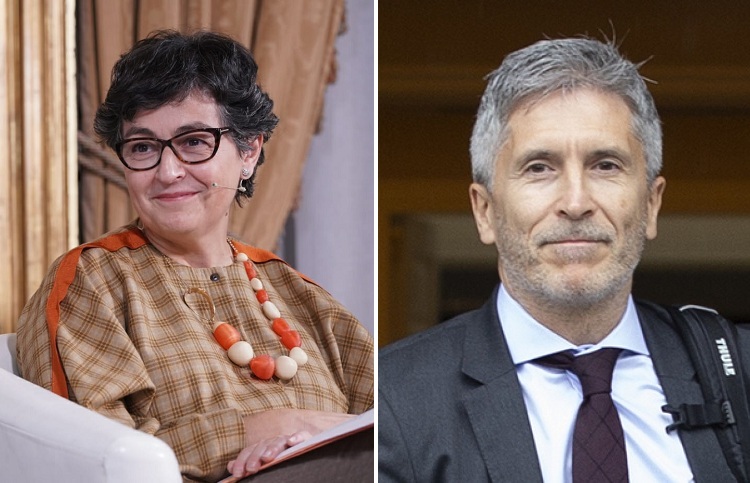Eduardo González
The Ministers of Foreign Affairs and Interior of the European Union will discuss today the so-called “external dimension of EU migration policy” in the framework of the New Pact on Migration and Asylum and ways to make migration a “central element in bilateral relations with third countries”.
“Our intention is to hold a political debate on the external dimension of EU migration policy”, write the High Representative for Foreign Policy, Josep Borrell, and Portugal’s Minister of the Interior, Eduardo Cabrita (whose country holds the rotating presidency of the EU Council), in their letter of invitation to the governments.
The Minister of Foreign Affairs, Arancha González Laya, and the Minister of the Interior, Fernando Grande-Marlaska, will participate on behalf of Spain in this Jumbo (the term used in EU circles to refer to the enlarged councils in which at least two ministers from each Member State participate), which will be held by videoconference.
The aim of this meeting, as reported by Brussels, is to discuss “the external aspects of EU migration policy, in the framework of the New Pact on Migration and Asylum”, with special attention to “migration as a central element in bilateral relations with key third countries” and to “the search for ways to improve cooperation and coordination between EU countries, institutions and agencies”.
Borrell and Cabrita therefore called for discussions to focus on “how to strengthen comprehensive, mutually beneficial and tailor-made partnerships with third countries, jointly identifying concrete areas of work for the future and the next steps to be taken on that basis”, and on how to “ensure that migration, in all its relevant aspects, becomes a central and constructive issue in our overall bilateral relations with third countries”. The two convenors have also asked Member States to provide, from their own experiences, “concrete examples of the approach they have taken towards partners with whom they have achieved good cooperation on migration”.
With this in mind, the Spanish government’s aim, according to sources from the Ministry of Foreign Affairs, is to offer the other European partners its “global approach to migration policy” based on its own experience with the countries of the Maghreb, the Sahel and West Africa.
The two Spanish ministers are aware that, during the videoconference, they will clash with the positions of the countries most reticent about the Migration Pact, which have demanded that aid to third countries be conditional on the reception of migrants returned from Europe. Therefore, González Laya and Grande-Marlaska will try to demonstrate, based on the Spanish experience in this matter, that conditionalities of this type “do not give results” and that the returns are more effective when “a constructive relationship with the countries of origin and transit” is created. According to the same sources, the conditionality proposals come from countries “without the proven experience of Spain in the management of migratory flows”.
The objective of the Government, according to the mentioned sources, is to present to its European partners the Spanish migratory model which emerged after the so-called “cayuco crisis” of 2006, which is based on a “more balanced policy”, on the creation of “legal channels of migration according to the labor market” and on the “cooperation with the countries of origin and transit”. Likewise, Spain, France and Italy will present a common position on the “external dimension” based on development cooperation, cooperation in the administrative improvement of migration agencies, the deployment of Frontex, the training and capacity building of migration agents and agencies, and the possibility of opening mechanisms or legal channels for migration.






